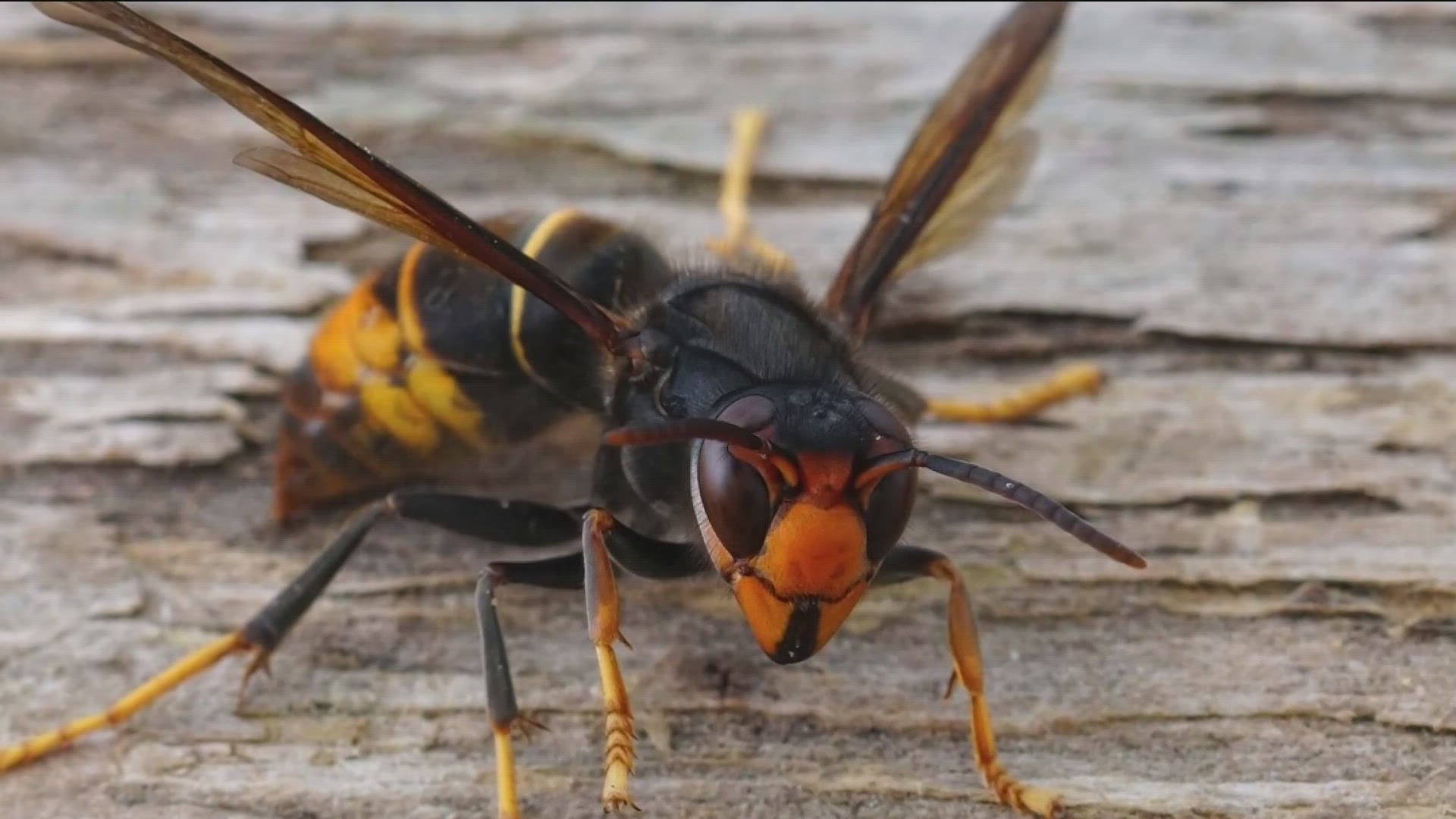TWIGGS COUNTY, Ga. — The discovery of murder hornets in America a few years ago created quite a buzz. Now a cousin of the giant wasp, the yellow-legged hornet turned up near Savannah recently.
They target bees, which play a big part in Georgia's agriculture since they help pollinate crops.
Farmers and experts are working to ensure it doesn't spread.
"Beekeeping for us was originally a retirement plan. This is what I want to do once I'm not working a day job anymore," says beekeeper Cory Leinberger. He is one of four members of Honey Badger Apiaries, a company that makes honey in Twiggs County.
Leinberger is one of many beekeepers and farmers monitoring the yellow-legged hornet, which is generally identifiable as "the legs are partially or primarily yellow, hence the common name 'yellow-legged hornet,'" and "the body and head coloration can vary. "
"We call them bee hawks. They visit the beekeeper's apiaries, and they swoop down and capture the bees right out of the sky. They may capture them on the entrances of their hives, and they're very relentless," says Keith Delaplane, a professor of entomology at the University of Georgia.
Delaplane says the invasive yellow-legged hornet was spotted in the United States this month.
"Once they discover an apiary, they keep coming back again and again over, and they can drain a colony of their workforce," says Delaplane.
Right now, The Georgia Department of Agriculture is working to find and wipe out any traces of the species.
"The Department of Agriculture inspectors have been marshaled in Savannah, and they are working to try to track them and locate their nest and get rid of it," says Delaplane.
The hornets are native to Asia and are now in parts of Europe. They build large egg-shaped nests, usually in trees.
The Georgia Department of Agriculture and the federal APHIS are asking for anyone to report sightings, but note the yellow-legged hornets can be dangerous, and "encourage everyone to use caution in the event of a sighting."
Anyone who believes they have seen a yellow-legged hornet is asked to use this form to report it, or email yellow.legged.hornet@agr.georgia.gov.
"If a colony is discovered through reporting, trapping, or tracking, the colony will be eradicated. APHIS is providing technical expertise, technology, and outreach support as well as analyzing the hornet’s DNA to determine if it is related to European populations of this species." a release from the Georgia Department of Agriculture said.

